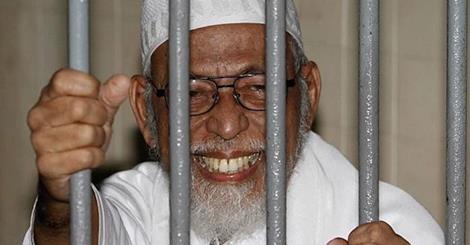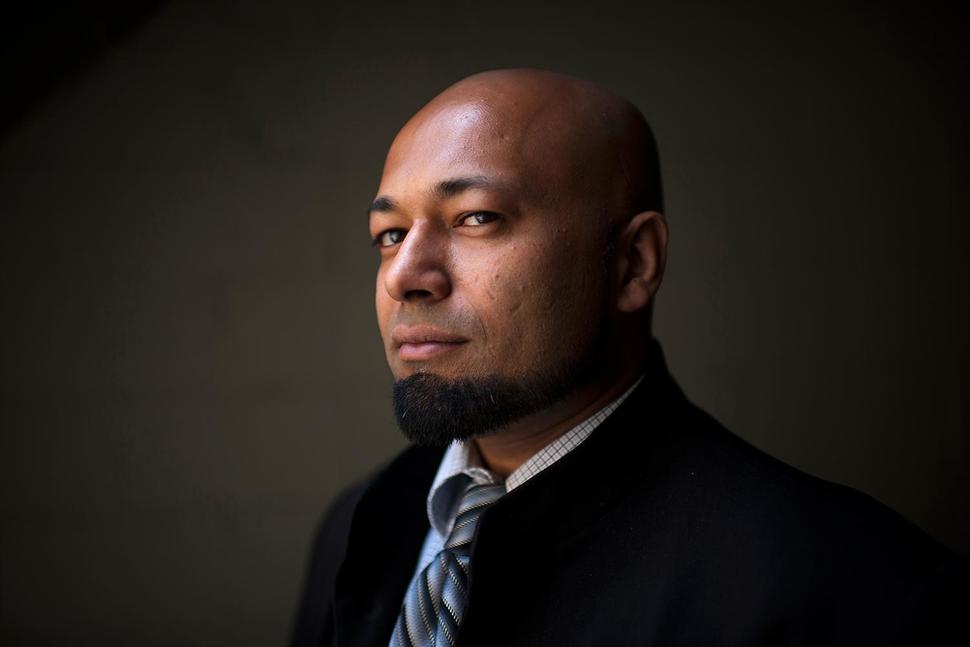In response to the growing threat of terrorism, governments across the world—from Egypt to the United Kingdom—are enacting anti-terror legislation to improve security and prevent attacks. While these policies are diverse in their methods, scope, and effectiveness, they share a common thread: the failure to adequately address the threat of Islamic terrorism emanating from prisons.
Despite the fact that some of the world’s most prolific terrorists were either radicalized in prison or used their incarceration to build extremist networks, the connection between prison and terrorism is seldom discussed.
Prison can be a transformative experience for potential radicals. Self-proclaimed Caliph Abu-Bakr al-Baghdadi began forging links with key al-Qaeda members and building the foundations of ISIS while incarcerated in Camp Bucca, an American prison in Iraq. Abu Musab al-Zarqawi, the founder of ISIS’ predecessor al-Qaeda in Iraq (AQI), began his transformation from small-time crook to insurgent kingpin while imprisoned in Jordan. Charlie Hebdo attacker Amédy Coulibaly and Richard Reid, the infamous “shoe bomber,” also embraced radical Islam in prison while detained for crimes unrelated to terrorism.
In an interview with The Guardian, former ISIS fighter Abu Ahmed explained how Camp Bucca was integral in developing the organization. He stated that it would have been impossible to develop ISIS outside of prison due to threats from American and Iraqi counterterrorism operations, but inside Camp Bucca, they were safe and “only a few hundred [metres] away” from the entire AQI leadership.
While Camp Bucca is an extreme illustration of the dangers inside prisons due to the vast number of high-profile terrorists it housed, it does demonstrate the networking potential that exists when many violent individuals are held in close quarters. On a smaller scale, Britain, France, the United States, and other Western countries have struggled to prevent the development of terrorist cells inside their respective prisons.
In addition to providing a haven for terrorist networking, the violent and cliquish environment makes it easier for imprisoned extremists to attract recruits and expand their following.
What makes inmates so susceptible to radicalization? For both inmates and ordinary civilians, the radicalization process is complicated. Radicalization often begins from a deep sense of injustice or a desire for belonging. When combined with religious motivation, political discontent, and the dire personal circumstances faced by prisoners, extremism becomes dangerously appealing. Like civilians, prisoners desire the sense of community that extremist groups claim to provide. However, this need to belong is amplified among inmates because belonging and safety are deeply interconnected in the violent prison environment.
In prison, there is safety in numbers. This means inmates are often left no choice but to join religious or race-based gangs for their own protection. Once a part of these groups, peer pressure, fear, and a need for respect can kickstart radicalization, even among moderate inmates. In addition to their security needs, poor education, a propensity for violence, and a lack of economic opportunity after prison can attract inmates to extremism.
While religious practice is often positive and gives prisoners a sense of purpose, inmates who adopt extreme beliefs can become significant threats outside of prison. Although prisoner radicalization is relatively rare, terrorism is a small-number phenomenon; a few can have a great impact on the lives of many.
Measures to prevent prisoner radicalization could significantly improve security by discouraging dangerous criminals from adopting radical ideologies and connecting with extremist groups. In addition to isolating prisoners who spread militant ideologies, improving religious services, hiring more prison guards, and creating effective de-radicalization programs can help mitigate the threat.
The type of religious service (or absence of official services altogether) is a key factor in religious radicalization. In the West, instances of prisons carelessly hiring radical clerics have been reported. However, radicalization often occurs when inmates assume the role of “unofficial preacher” when official services are not provided. These previously radicalized inmates espouse a selective and violent version of Islam, dubbed “Prislam”. Once released, radicalized prisoners can do serious damage. France’s Charlie Hebdo and Mohamed Merah attacks provide painful reminders of the dangers of prison radicalization.
Ensuring official preachers give moderate sermons and prisons provide effective anti-radicalization programs can help stifle the spread of radical Islam within prisons. Furthermore, improving the guard-to-prisoner ratio, which can reach 1:100, would give prison staff a better opportunity to identify and isolate those responsible for spreading extremism.
In addition to improving the capabilities of existing prison institutions, Western nations should consider adopting the counter-extremism strategies used in Saudi Arabia and South Asia. These countries have created “terrorist rehab centres” to supplement prisons. These centres use intensive religious reeducation to de-radicalize terrorists and deconstruct their religious justifications for violence.
Saudi Arabia’s Care Centre employs well-respected Muslim clerics who challenge terrorists to think critically about their jihadist interpretation of Islam, ultimately aiming to convert them to a non-violent form of the religion. The centre also employs psychologists to address the mental trauma that occurs when the terrorists face extreme violence. Contrary to popular belief, the majority of terrorists do not possess a deep understanding of their religion. Often they have poor religious education or are recent converts to Islam, a factor that has made religious reeducation by respected clerics a remarkably successful strategy. Over 80% of the Care Centre’s participants have been successfully reintegrated into Saudi society, much higher than comparable initiatives that aim to reintegrate ordinary criminals.
While the Care Centre’s reeducation program has been successful in Saudi Arabia, it may prove difficult to replicate in the West due to its cost and a perceived lack of religious legitimacy by Western clerics. However, if the West can develop programs that incorporate well-respected religious figures, they may be able to address the ideological roots of extremism and reduce the potential for prisoner radicalization. This “soft” strategy also serves to counter the jihadist “West vs. Islam” narrative by demonstrating compassion rather than coldness.
As Western nations enact laws to imprison returning foreign fighters and homegrown radicalization becomes increasingly problematic, it is imperative to ensure that the security threat shrinks when terrorists are imprisoned. Providing psychological treatment, rehabilitation, and reeducation programs, as well as improving prison security, can help ensure our prisons make us more, not less, safe.




